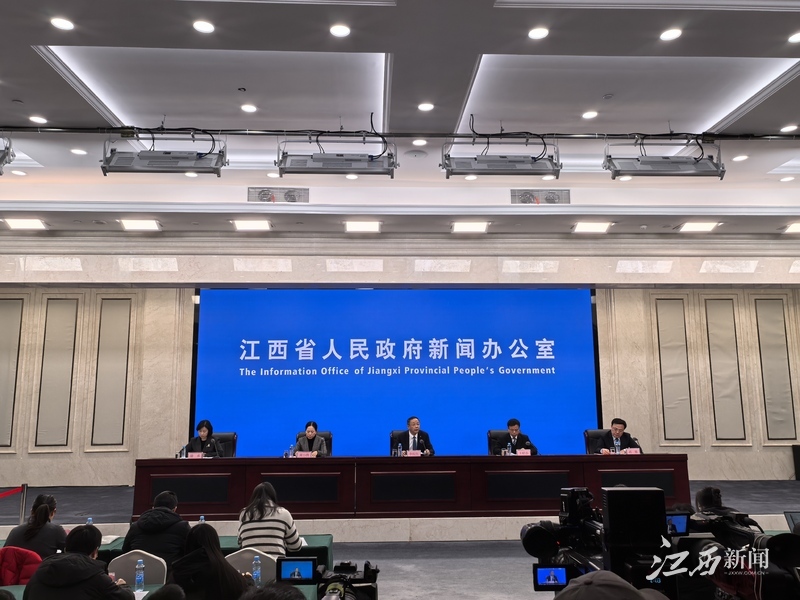Use Academics To Dialogue With The World - Written On The Occasion Of The Opening Of The Second World Congress Of Chinese Studies
Use Academics To Dialogue With The World - Written On The Occasion Of The Opening Of The Second World Congress Of Chinese Studies
China Daily Network
Chinese civilization is a civilization that emerged on the land of China and is also a civilization formed by continuous exchanges and mutual learning with other civilizations. Over the past hundreds of years, with the continuous expansion of mutual learning between Chinese and foreign civilizations, the outside world has gradually formed a specialized academic system to systematically understand China. Through the academic window of "China Studies", Chinese knowledge and culture have spread to all parts of the world on a large scale. Today, China is developing rapidly, the interaction between China and the world continues to deepen, and the global value of China Studies research is increasingly evident.
On October 14, 2025, the biennial World Congress of China Studies kicked off again. About 500 well-known experts and scholars at home and abroad gathered on the banks of the Huangpu River. As a high-level academic platform that brings together China studies around the world, one of the core concepts the World China Congress hopes to convey is to build an open and inclusive global China studies academic community and promote the international community to better understand China's history, present and future.
Tradition and modernity: a holistic picture of civilization
For a long time, Western traditional Sinology has focused on ancient Chinese literature, philosophy, and history. Scholars, with their curiosity and longing for Eastern civilization, have tried to decipher the ancient and mysterious codes of Chinese civilization.
Today's China Studies research has spread from the traditional sinology centers in Europe and the United States to universities and cultural institutions around the world. Scholars from various countries use a variety of social science methods to interpret various issues related to China such as economic development, technological innovation, social governance, and international relations, and to interpret new forms of ancient civilization.
The development and changes from Sinology to Chinese studies once again show from one aspect: traditional China and modern China have never been separated or opposed, but have been inherited and developed. From the people-oriented thinking of "the people are the foundation of the country" to the "people-centered" development thinking, from the ecological wisdom of "harmony between man and nature" to the development concept of "lucid waters and lush mountains are invaluable assets", from the value pursuit of "universal harmony" to the vision of a "community with a shared future for mankind" The beautiful vision vividly explains that the evolution of Chinese civilization is an organically renewed whole; Chinese modernization is a new path that has both historical depth and the vitality of the times, based on the creative transformation and innovative development of traditional resources.
Future-oriented China Studies research should be more proactive in organically unifying the two dimensions of tradition and modernity. Through a more holistic, comprehensive, and in-depth perspective and method, we should understand and explain how China explores a modernization process that suits its own characteristics while returning to its roots and innovating, and what enlightenment it will bring to the world, in order to draw a holistic civilization picture of China.
Questions and Methods: Responding to the Issues of the Times with Chinese Practice
The production of knowledge about China outside the territory has long been about appreciating or criticizing China as a mere other, or what Edward Said called the "desire and representation" of the West. In response to this situation, Japanese scholar Mizoguchi Yuzo once proposed "China as a method," advocating that we truly understand China based on China's local experience, historical logic, and thinking methods, extract more "methodological" resources from it, and enrich and improve the cognitive framework of the world's diverse civilizations.
Facing many current global development problems, more and more Chinese researchers are practicing this consensus. For example, in the face of the problem of insufficient motivation for global poverty reduction, China's targeted poverty alleviation strategy has lifted nearly 100 million rural poor people out of poverty and completed the poverty reduction goals of the United Nations 2030 Agenda for Sustainable Development 10 years ahead of schedule. In response to the modern dilemma of the opposition between industrial civilization and ecological protection, China has followed the guideline of "lucid waters and lush mountains are mountains of gold and silver" and integrated "mountains, rivers, forests, fields, lakes, grass and sand" Integrating "global governance" into development plans provides a win-win Chinese solution for global sustainable development, both ecological and economic. In response to the imbalance of the global governance system, China's "One Belt, One Road" initiative has transformed the principle of "extensive consultation, joint contribution and shared benefits" into specific cooperative practices, breaking the "zero-sum game" thinking of traditional geopolitics and injecting new momentum into improving the global governance system...
In this sense, the mission of current China Studies research is to theoretically refine China’s experience, so that the world can understand the ideas and methods behind China’s development, and better respond to the issues of the times with Chinese practice.
Classics and fields: closer to the real China
If classics are the memory of civilization, then fields are the pulse of civilization. If you bury yourself in the past, you will easily fall into the "myth of imagination". If you stay away from the field, you will eventually be unable to escape "superficial interpretation".
This reminds one of the academic relationship between two professors at Harvard University and China. One is Professor Fu Gaoyi. In the 1980s, he stayed in Guangdong for more than seven months and visited more than 70 of the more than 100 counties in Guangdong. It is precisely because of such solid on-the-ground fieldwork that "One Step Ahead: Guangdong in Reform" - the first monograph by a foreign scholar to comprehensively study and report on China's reforms. This also laid a solid foundation for his later masterpiece - "The Era of Deng Xiaoping".
The other is Professor Pei Yili. After China's reform and opening up, she became one of the first batch of foreign scholars allowed to come to China to conduct fieldwork. In the 1980s, she conducted fieldwork in rural areas of northern Anhui, China. Later, she conducted research based on detailed first-hand information on the Shanghai workers' movement from the Shanghai Academy of Social Sciences. Her academic achievements on the urban workers' movement are world-renowned. Studying China "makes me feel like I'm home," she said.
Research on China studies should be rooted in Chinese fields. Only by combining documentary research with on-the-spot investigation can we touch upon a true, three-dimensional, and comprehensive China and tell a Chinese story with both depth and warmth.
Contemplation and dialogue: an academic bridge for mutual learning among civilizations
Academic research is like a tapestry, with contemplation as the warp and dialogue as the weft. Only by interweaving the warp and weft can we weave a rich and colorful knowledge landscape.
The same is true for the development of Chinese studies. From the French sinologist Wang Demei who spent decades sorting out Confucian classics and ancient political documents to explore the origins of China's ritual civilization, to the American scholar Benjamin Schwartz who devoted more than ten years to writing "The Intellectual World of Ancient China", many academic models have proven that only through long-term meditation can one accumulate profound academic skills.
At the same time, dialogue, comparison and reflection are academic approaches to seeking truth. For example, Professor Fairbank of Harvard University, known as the "founder of China Studies", has brought him great reputation and a lot of criticism for his "impact-response" theory. Ke Wen, a disciple of Fairbank, has also put forward academic propositions such as "China-centered view" and "discovering history in China", emphasizing more attention to the internal reasons and needs for the development and progress of modern China. In the face of academic controversy, Fairbank showed extremely broad-mindedness and tolerance, and even helped Ke Wen publish relevant academic works. It is through equal dialogue that exchange of ideas can occur and a healthy and innovative academic ecosystem can be built.
"Poetry" says: "Listen to the song, and ask for the voice of its friends."
I believe that the ideological excitement and academic exchanges generated by this conference will not only allow Chinese wisdom to provide new ideas for dealing with global issues, but also enable world civilization to enrich China's academic and cultural vision. Through the academic bridge of Chinese studies, different civilizations can better learn from each other and make progress together.
(The author Liu Liu is deputy director and researcher of the Regional Country Research Center of the Institute of Contemporary China and the World, China Foreign Languages Publishing Administration)





